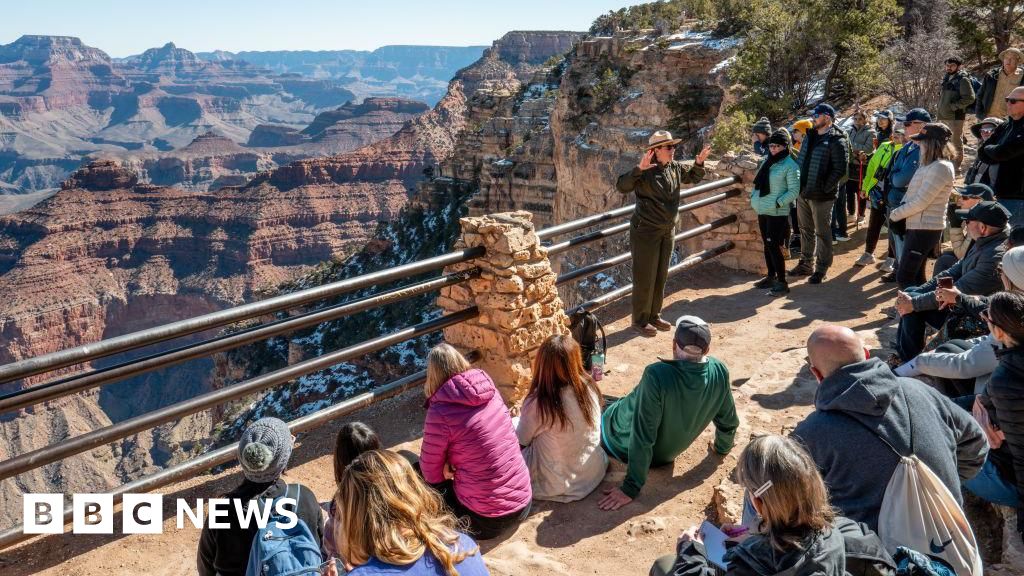7 suspects in killing of Ecuador presidential candidate found dead in prison
The suspected gunman in the assassination was killed by police, but six other alleged collaborators were detained shortly after. All of them were identified as Colombian nationals who were believed to have links to organized crime groups. Last month, seven other people — all Ecuadorian citizens — were arrested in connection with the killing.
The six Colombian men had been detained in one of Ecuador’s most dangerous prisons, the Litoral Penitentiary in the outskirts of Guayaquil, a facility controlled by the country’s increasingly powerful gangs and the site of some of the country’s bloodiest prison battles. Days earlier, the men had asked the attorney general’s office and Ecuador’s prison agency to be moved to a safer prison and were denied, according to SOS Prisons Ecuador, a human rights organization focused on the country’s prison system.
The Colombians were all found dead on Friday in their prison ward, authorities said. Hours later, on Saturday morning, officials said they found a seventh suspect dead in a prison near the capital of Quito.
The causes of death of the seven suspects were not immediately clear. But prison advocates, political leaders and Colombia’s foreign ministry all condemned what they described as killings.
The deaths threaten to hamper an FBI-supported investigation into Villavicencio’s assassination just days before Ecuador’s final round of voting for president.
The six Colombians were all found dead in ward 7, which was under the control of the powerful gang called Los Lobos, according to one prison researcher who spoke with multiple people inside the Guayaquil penitentiary and asked to remain anonymous due to security concerns.
Because there was no fight between competing gangs, the prison researcher said, the men may have been killed by members of Los Lobos.
The deaths occurred on the day that Ecuador’s interior minister announced the government had completed an intelligence report on Villavicencio’s slaying. Authorities were preparing to declassify it, the minister said, nearly two months after the assassination.
Late last month, the U.S. State Department announced it was offering a reward of up to $5 million for information leading to the arrest or conviction of co-conspirators and masterminds behind the assassination. It also offered an award of up to $1 million for information leading to the identification or location of any individual holding a key leadership position in the organized crime group responsible for Villavicencio’s killing.
The investigation, supported by the FBI, continues to identify others involved in the assassination, according to the statement from U.S. Secretary of State Antony J. Blinken
Colombia’s ministry of foreign affairs condemned the presumed killings of the six Colombian nationals and expressed “solidarity with the families of the victims” while offering to support Ecuadorian authorities in their investigations.
Ecuador President Guillermo Lasso, who was traveling in New York, said Friday night that he was returning immediately to Ecuador and canceling a trip to South Korea in response to the “crimes” that occurred in the prison.
“I have ordered an immediate meeting of the Security Cabinet,” he said Friday night in a tweet. “Neither complicity nor cover-up, here the truth will be known.”
Diana Patricia Mosquera Ortiz, the mother of one of the six Colombian men, Andrés Mosquera, said she learned of the death of her son on social media. No officials have called to tell her anything, she said in an interview with The Washignton Post.
Her 30-year-old son, along with two of the other Colombian suspects, were from the Colombian city of Cali. They all came from Aguablanca, a poor, gang-controlled district in the eastern part of the city, a place with dusty streets and few economic opportunities.
Andrés Mosquera was a father of two who, like his mother, worked as an informal recycler, picking through plastic trash, glass bottles and cardboard on Cali’s streets to then sell the items for cash.
When he left for Ecuador, the 30-year-old told his mother he was going to work a construction job there, his mother said. He had never left the country and was eager to earn money in Ecuador’s dollarized economy.
Mosquera said she had only spoken with her son once since his detention, over a brief video call on a phone he managed to rent in the prison.
Andrés Mosquera insisted to his mother that he was not guilty. He told her that he had been beaten and had suffered a broken rib.
The mother hopes to find money to repatriate her son’s body, she said.
The deaths occurred a little over a week before Ecuadorians will vote for president, in an election cycle consumed by fears over the drug violence wreaking havoc across the country. A historically peaceful country, Ecuador has seen record levels of homicides, drug seizures and prison massacres. Increasingly powerful gangs have teamed up with international drug cartels to turn the country into a key transit point for moving cocaine to the United States and Europe.
On Oct. 15, Ecuadorians will choose between Daniel Noboa, a 35-year-old former lawmaker and son of a well-known businessman, and Luisa González, a socialist ally of former president Rafael Correa. Polls show Noboa in the lead.
Both candidates condemned the deaths of the suspects.
“How could we allow the empowerment of violence that has plunged the entire country into terror and uncertainty?” Noboa tweeted. “Let’s recover the nation of peace that we all long for.”
González criticized the fact that the deaths occurred just as government officials were preparing to release their report on the Villavicencio assassination. “Draw your conclusions,” she tweeted.
Check out our Latest News and Follow us at Facebook
Original Source






